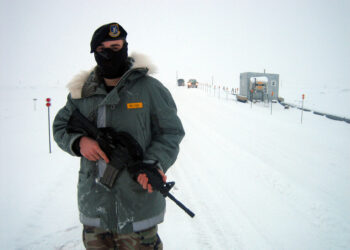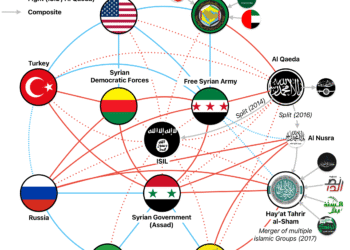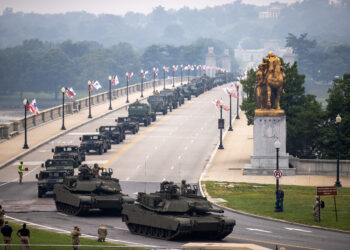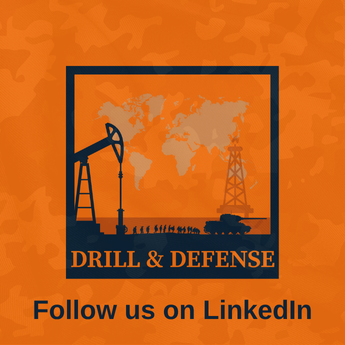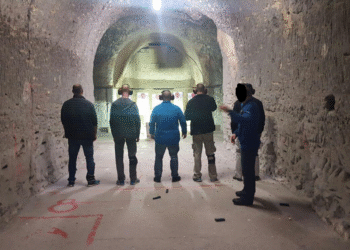Europe has been racing to fix its artillery ammo shortfall. Denmark’s decision to restart ammunition production at its Elling plant and Nammo’s role as operator just moved that effort from planning to hardware. Layered on top is Repkon’s agreement to deliver a 155 mm explosive filling line for Denmark. Put together, this is a telling snapshot of how the Nordics want to solve supply chain risk at home while tapping best in class niche suppliers abroad.
The facts you need first
Copenhagen has formally picked Nammo to re-establish production at Elling, with lines slated for 155 mm and 120 mm shells plus 5.56 and 7.62 cartridges, standard NATO calibers. The move follows Denmark’s 2023 purchase of the mothballed site and a wider defense spending surge aligned to the threat picture after Russia’s 2022 invasion of Ukraine. The state is also taking a minority stake in Nammo Denmark A/S to lock in security of supply.
Against that backdrop, Nammo has brought in Repkon to deliver a complete 155 mm ammunition filling capability in Denmark. Open reporting indicates the line is designed for modern formulations including TNT and insensitive munitions mixes like IMX 101 and 104 and high automation, with lean headcount and tight process control. This is about throughput, yes, but also uniformity and safety.

Why Denmark, why now?
If you follow this space, you know the North’s ammo strategy is shifting from buy where you can to produce where you must. The Nordic Strategic Partnership with Nammo signed by Denmark, Finland, Norway, and Sweden codifies that trend with aligned calibers, long term contracting, and regional self reliance. In parallel, national orders such as Sweden’s fresh buys are front loading demand so factories aren’t waiting for piecemeal tenders. The Repkon line slots into this ecosystem as a specialist module inside a broader state anchored framework.
For Denmark specifically, Elling restores sovereign capacity after decades of offshoring and closures. It also hedges against global bottlenecks, propellants, energetics, and qualified labor, by narrowing transport distances and lifting Nordic interchangeability. That matters when you need shells on a schedule, not a wish list.
What Repkon actually brings to the table
Repkon isn’t just another integrator. Its edge is the combination of metal forming heritage, notably flowforming for tight tolerance cylindrical parts, and turnkey energetics infrastructure via partnerships and acquisitions in Europe. In practice, that means the company can bridge the gap between shell bodies, explosive processing, and the automation that stitches those steps together, an uncommon mix in a fragmented market. On the Danish project, Repkon’s filling line complements Nammo’s operator role, lifting Elling from a plant address to a live modernized node in the Nordic supply chain.
If you’re thinking so what, consider quality and safety. IMX class formulations reduce sensitivity to shock, heat, and fragments, good news for storage and transport, yet demand precise thermal control, dosing, and cure cycles. That is the point of the automation narrative here: fewer human touchpoints, tighter parameters, more predictable ballistic performance lot to lot.
The regional chessboard
Look one layer up. The Nordics are locking in ammo security through multiyear frameworks and shared standards. Reuters puts it plainly, the new cross Nordic agreement with Nammo is about enough ammunition for deterrence and defense, not just next quarter’s deliveries. Meanwhile, Denmark is co investing in its own production line, an unusual but telling structure for Europe’s defense industrial policy. This pairing, regional framework plus national equity, lowers commercial risk for primes and their suppliers and it should shorten the time from purchase order to rounds on pallets.
You also see demand shaping behavior. Sweden’s recent SEK scale artillery buys spread orders across suppliers Nammo and Rheinmetall Denel, diversifying risk while keeping capacity warm across the region. That predictable baseline of orders is the lifeblood of any ammunition plant. Without it, capacity fades between crises.
Where the bottlenecks still live
Even with Elling, Europe’s choke points won’t vanish overnight. The hardest constraints have been energetics such as nitrocellulose, propellants, some precursor chemicals, and qualified technicians. Denmark’s plan addresses assembly capacity, but upstream feeds remain global. That is why the Nordic framework is as important as the brick and mortar. It creates visibility into shared demand and, over time, leverage to expand inputs. Expect the next fights to be about powder, not press time.
Read this as a signal about supplier portfolios
There’s a broader takeaway for industry watchers. Europe is rewarding firms that can integrate, not just sell a machine or a recipe, but deliver interoperable lines that mesh with national safety codes, NATO standards, and digital QA. Repkon’s Danish role fits that mold, and Nammo’s operator remit shows the prime contractor’s value in qualification, lifecycle, and fleet wide configuration control. If you’re mapping who does what, put Nordic sovereign operator on Nammo and specialist line integrator on Repkon for this project.
What this means for Turkey based suppliers
For Turkey’s defense industrial exporters, the Denmark case is a proof point. Quality, certification, and niche excellence open doors, even into highly regulated European energetics and ammunition domains. It also underscores how Turkish companies can win by fitting into allied industrial architectures rather than trying to replicate them end to end. In other words, the future European market will likely favor modular, standards compliant contributions over solitary turnkey bids that sit outside national frameworks.
What to watch next
Ramp timelines. When Elling crosses from construction to qualification to volume runs. Look for milestones tied to safety approvals and lot acceptance testing rather than ceremonial ribbon cutting.
Energetics sourcing. Any Nordic moves to localize propellants and IMX class precursors, or to pool buys across borders.
Follow on modules. Whether Denmark adds complementary lines such as propellant bagging or fuze assembly or deepens its state stake to secure supply further.
Regional demand signals. Multi year orders from Sweden, Norway, and Finland as the Nordic partnership flows through to line loading.
Sources
Reuters “Nordic countries sign new ammunition agreement with Norway’s Nammo”
Denmark Ministry of Defence “Forsvarsministeren vælger operatør til national ammunitionsproduktion”






